On July 22, President Rodrigo Duterte delivered his 4th State of the Nation Address (SONA). As expected, he told Congress what laws he wants passed and what Filipinos can expect in the last half of his term.
One of the priority bills he mentioned was the creation of a Department of Disaster Resilience (DDR), which he said will prepare us for future natural calamities, citing The Big One as an example. He also made special mention of his trusted aide, neophyte senator Bong Go, and Go’s pet bills which include the #DDR bill.
The Citizens’ Disaster Response Center Foundation, Inc. reiterates its call against the creation of a Department of Disaster Resilience. The conception of the DDR will not automatically translate to disaster resilience nor to effectivity and efficiency, considering the history of disharmony, lack of coordination and overlapping of jurisdictions and mandates of various agencies.
The DDR bill contains provisions and mechanisms that reverse gains from RA 10121 or the Philippine Disaster Risk Reduction and Management Act which is considered globally as “best model” legislation.
The bill does not build on the previous gains of RA 10121. It combines disaster risk and climate change action plan and will strip the Climate Change Commission of its mandate. It is inconsistent with some provisions of international agreements and frameworks cited in the bill as legal basis. It compromises state obligations under international law.
The most dangerous flaw of the bill is its failure to mention community-based participation which was emphasized in the sunset review of RA 10121. Community involvement is significant in end-to-end early warning and the localization of disaster risk reduction (DRR).
The DDR bill obliges the local government units (LGUs) to buy insurance without taking into consideration the latter’s differing capacities to pay the premium and fulfill it. Obliging poor households will create further burdens for them. Local studies showed that LGUs from 4th to 6th class municipalities cannot pay premiums. The sunset review focuses on capacity building and not just risk transfer.
This provision somewhat favors the private sector and big businesses. It does not cover the strengthening of mitigation and adaptation capacities of communities to offset potential risks and damages. It focuses on risk insurance but fails to include pre-emptive measures and an enabling environment that will reduce risks. Capacity building and options for risk transfer must go hand-in-hand especially in terms of communities’ capacity to decide on the best options they have. It is important to highlight and promote community-based mechanisms that are supported by capacity building with risk transfer options which are more affordable and sustainable.
The bill provides that DRRM workers should have incentives; unfortunately, incentives are only for LDRC, NGOs and CSOs, private sector, and schools. It does not support local efforts of DRRM workers who are at the heart of DRR. The LDRC composition is still vague, not clear, thus we cannot presume that DRRM workers will be acknowledged.
Again, CDRC believes that the creation of the DDR will not necessarily lead to resilience. We encourage to build on the successes and good practices of RA 10121 as stated in the sunset review. Greater participation of civil society at all levels should be emphasized to ensure that the voices of grassroots communities are heard. CSOs in the DRRM community are composed of people who have pioneered effective disaster risk reduction approaches and have played many key formal and informal roles in community risk reduction and recovery. Their participation in public decision making have been proven, time and again, to be valuable.
